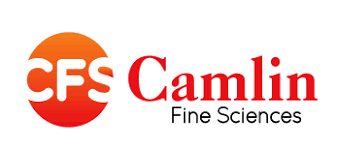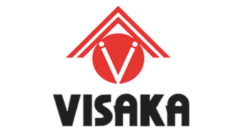Dear Readers,
Everyone wishes to own a 2-wheeler or a 4-wheeler and every 2/4 wheeler needs a battery. Further, every battery has on an average a life span of 3-4 years and thus one needs to change battery in his/her automobile every 3-4 years. Similarly, it goes for UPS and their batteries. Thus, manufacturing batteries seems like a good and recurring business, so why not look at one of the major companies that deals in Automotive and industrial batteries.
Amara Raja Batteries (NSE Code – AMARAJABAT), in case the name sets you thinking about this new brand in the segment of batteries apart from the well known Exide and Amaron, it would be interesting to mention here that Amara Raja is the company behind the well known AMARON and Powerzone brand in the segment of automotive and industrial batteries respectively.
Yes, Amara Raja Batteries (ARBL) is the second largest battery maker in India, after Exide, and is already challenging Exide’s un-disputed leadership in the automobiles battery segment, while commands a leadership position in the Industrial battery segment.
Basic Details:
ARBL was set-up in 1985. The company began commercial production in 1992 and got its first bulk order of 200 sets of batteries from the Department of Telecom (DoT) around 1993, followed by a commercial order in 1995. ARBL was the first company in India to launch batteries based on VRLA (Valve regulated lead acid) technology and back in early 1990s DoT was their biggest client.
Realizing the need to diversify and not be dependent on the Government alone for the business, in Dec’97 the company entered into a Joint Venture Agreement with US based Johnson Controls Inc (JCI), the world’s largest manufacturer of automotive batteries, to manufacture automotive batteries in India with an advanced technology. Thus, in 2000 ARBL entered the segment of Automotive batteries with the launch of AMARON batteries based on Zero maintenance technology for the first time in India, the key differentiator in an otherwise cluttered automotive battery market.
Since the company started business by focusing on the industrial segment, it commands a market leadership in Telecom and UPS battery business with 45% and 32% market share respectively.
In the Automotive battery business, Exide commands the leadership position by a wide margin, however it is important to note here that ARBL started with the automotive battery division in 2000-01, while Exide’s been in the business since 1950s. In the light of the same, we like the fact that on the back of improved technology and a differentiated distribution strategy, ARBL has been able to garner a market share of 25% in OEM and 30% in after market segment in just 12 years in the organized four-wheeler battery business.
Until 2007-08, the company was not providing batteries in the two-wheeler automotive battery segment; however, since the launch of Amaron Pro Bike Ride brand in the two-wheeler segment in May’08, the company has been able to garner a market share of 25% in the organized replacement battery market, despite the fact that they still don’t have any presence in the two-wheeler OEM segment.
It is important to note here that the replacement market has better margins and is relatively insulated from tightening interest rates that tend to affect auto and auto ancillary sales.
As can be observed from the above illustration, the company’s performance has been very good over the years and consistently delivered return on equity in excess of 20%. Company has still been able to grow at 23% on annualized basis during the last 4 years and it is important to note here that during the same period the automotive industry went through extreme lows and highs.
Besides, the company achieved the above performance on the back of debt free balance sheet and consistent yet effective capacity expansion. Even during FY 12, the company enhanced its 4-wheeler and 2-wheeler battery capacities to 5.60 million units per annum (4.2 million units p.a. at the end of FY 11) and 4.80 million units per annum (3.6 million units p.a. at the end of FY 11) respectively. For FY 13, the management has indicated enhancing the capacity of 4-wheeler batteries to 6.0 million units per annum.
Despite the above expansion, as at 31st Mar’12, the company continues to be debt free with cash and cash equivalents in excess of Rs 230 crores.
Positives:
The Indian battery industry commands a certain branding power on account of being duopoly in nature with top players’ viz. Exide and Amara Raja controlling ~90% of the organized market. As I see it, amongst all the components in the automobile, battery probably commands the highest degree of branding power.
Further, companies like Amara Raja and Exide are able to pass on the rise in input costs, primarily lead, in the replacement market. With OEMs, they have a “lead pass through agreements”. These contracts are linked to LME prices, such that a rise in cost of production due to lead is passed on to OEMs, though with a certain degree of lag.
Strong replacement market is another positive for battery manufacturers. At the end of FY 03, there were 6.7 crore registered vehicles in India while the number of registered vehicles are expected to have crossed a mark of 14.5 crore at the end of FY 11. Since the average life span of battery ranges from 2-4 years and since the battery replacement decision cannot be deferred, companies like Amara Raja are expected to benefit immensely from the ever increasing number of registered vehicles on the Indian roads.
Even though automobile industry witnessed muted growth in FY 12, over the longer term the industry is expected to maintain the growth rate of ~13-15%. Besides, in the automotive battery business, the unorganized segment still accounts for ~45% market share, however it’s steadily declining in favor of organized segment and thus there lies a good opportunity for ARBL.
What is best about ARBL is its constant search for better technology and these days’ customers are willing to shell extra money in the name of advanced technology.
Areas of concern:
For FY 11, ARBL derived ~20% of its revenue from Telecom sector. Off-late ARBL’s been witnessing pricing pressure on telecom batteries as the telecom industry is facing a lot of headwinds and the companies are resorting to cost cutting measures such as sharing of towers, thus bringing down the expansion of telecom infrastructure. However, company has still been able to manage low double digit volume growth on account of good order flow from Airtel’s expansion in Africa and since the company enjoys the “Preferred supplier status”.
Lead accounts for ~85% of the total raw material cost of the company and the prices of lead have been very volatile in the past. Though ARBL enjoys “lead pass through agreements” with OEMs, there’s a certain degree of delay before the company is able to pass on the hike to the customers and thus in a year with a sharp increase in prices of lead, the margins of the company can come under pressure.
Lastly, Mr. Jayadev Galla, the Managing Director of ARBL evinced interest in joining politics and this is a much bigger area of concern for us.
Valuations:
The stock is currently available at a market cap of Rs 2600 crores, i.e. 12 times trailing twelve months’ earnings of Rs 215 crores. The company is debt free (78 crore outstanding interest-free sales tax deferment loan representing a financial incentive by the state of Andhra Pradesh for setting up industry in a backward area. The sales tax collected by the Company in a particular year needs to be paid to the government after 14 years) with cash holdings in excess of Rs 230 crores.
We believe that valuations are attractive given the fact that both Amaron and Power Zone are two major brands in the automotive and industrial battery segment respectively. Further, on the back of advanced technology and the differentiated distribution strategy the company has been able to convert the industry from Exide’s monopoly to ARBL and Exide’s duopoly in just 10 years, which speaks volumes of the management’s execution ability.
The growth outlook is very bright for the battery segment and ARBL has been consistently expanding its capacity and its distribution network in order to sustain the growth momentum.
Note: This is not to say that the stock cannot witness any short term corrections, however 10-15% correction to ~Rs 255-265 will make the stock extremely attractive for long term investment.
Disclaimer: This note on Amara Raja Batteries is only for the purpose of information on the stock. Please carry out your own due diligence before buying/selling the stock.
Below is the article published on Amara Raja Batteries by Saral Gyan Team on 27 May 2010 - As on date returns on investments @ 88%
Value Pick - Amara Raja Batteries (Click on the link to view previous article)
Amara Raja Batteries Limited engages in the manufacture and sale of lead acid storage batteries for industrial and automotive applications in India. Its industrial products include Powerstack used in telecommunications, power utilities, railways, defense, and other heavy industries; and Amaron Quanta, a UPS battery with a back-up for a back-up. The company’s automotive products comprise PRO Hi-life, FLO, GO, Black, Fresh, Hi-way truck, Harvest, Shield, and Optima batteries under the AMARON brand.
Amara Raja Batteries markets its products through franchisees and retailers, as well as to original equipment manufacturers. The company exports its industrial and automotive batteries to Singapore, Malaysia, Hong Kong, Thailand, Indonesia, Vietnam, Taiwan, Philippines, China, Japan, Greece, Sri Lanka, Mauritius, Australia, Kuwait, Dubai, Iran, Yemen, Omen, Bahrain, Qatar, the United Arab Emirates, Tanzania, and South Africa. Amara Raja Batteries Limited was founded in 1985 and is based in Hyderabad, India.
India’s second largest battery manufacturer has registered a 50 per cent CAGR in revenues over the five year period FY04-FY09. The company whose revenues are split equally between industrial and auto segments is expected to end the current fiscal with revenues of about Rs 1,400 crore.
For the quarter ended March 2010, the company's total income for the quarter rose 30.92% to Rs 433 crore, and net profit increased to 36.70 crore from 28.05 crore when compared with the prior year period.
Amara Raja Batteries Ltd recommended a dividend of 145% i.e. Rs 2.90 per share of Rs 2 on 19th May.
For the December quarter, its revenues were higher by 10 per cent to Rs 366 crore and it doubled its net profits to Rs 40 crore. Operating profit margins improved by 500 basis points to 19 per cent over the year ago quarter.
Going ahead, lead prices which have doubled over the past year are expected to stabilise in the $2200-$2400 per tonne range. This is a positive as the raw material accounts for four-fifths of expenditure and further increases could have a dramatic impact on the margins, unless the company passes on the costs increases to customers. To overcome the slowdown in the telecom business (60 per cent of industrial segment revenues), the company is looking at the railways and the utilities segments. In the automotive segment, sales in the latest quarter were helped by strong demand from OEMs and commercial vehicles.
The replacement market, which gets two thirds of the automotive segment revenues, is also expected to do well going ahead given the company’s strong presence here. At Rs 160, the stock is trading at at P/E of 8.16 with FY 2010-11 estimated EPS of Rs 21 and should fetch about 25-30 per cent returns over the year.
Note: The stocks discussed in Saral Gyan through posts are not a part of "Hidden Gems" or "Value Picks" issue which we recommend to our paid subscribers only. These are just stock specific views by Saral Gyan Team; one must do the due diligence before doing any investment based on our recommendation.

 Home
Home Saral Gyan Freebies
Saral Gyan Freebies Saral Gyan Services
Saral Gyan Services About Us
About Us Contact Us
Contact Us





















